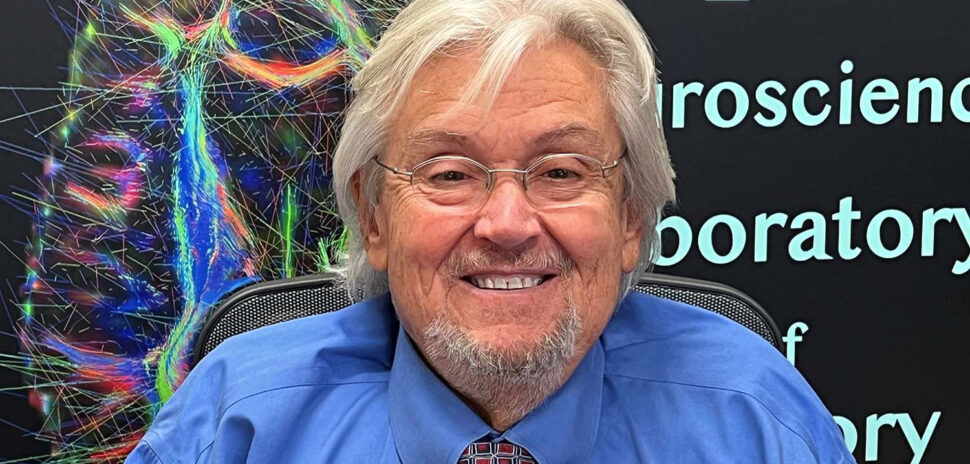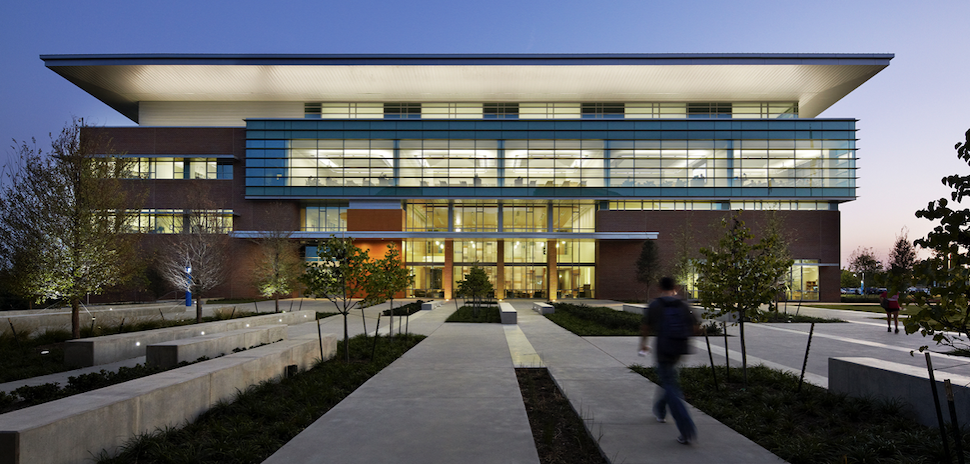In the fight against a leading long-term disability in multiple sclerosis patients, researchers at the University of Texas at Dallas are tackling debilitating aspects of MS that affect patients’ daily lives and work capabilities. According to Dr. John Hart Jr., cognitive dysfunction is “one of the fastest-growing long-term disabilities in MS patients.”
Now, Dr. Hart and his team have received a significant boost in their quest to discover whether a noninvasive electrical stimulation of the brain can aid in the recovery of word retrieval abilities in MS patients.
A three-year, $1.6 million grant from the Defense Health Agency has been awarded to the project. The funding from the DHA—a joint, integrated combat support agency that helps ensure the medical services of the Army, Navy, and Air Force are well-prepared—is aimed at validating the effectiveness of the treatment for MS patients.
Improving word retrieval in MS patients
“As we get better at treating the main symptoms that define MS, we’re seeing what other problems they develop further down the line,” Dr. Hart said in a statement. Cognitive issues are becoming a significant cause of work disability among MS patients, he added.
Dr. Hart, who holds the distinguished chair of neuroscience in UTD’s School of Behavioral and Brain Sciences, has received numerous multimillion-dollar DOD grants for exploring novel brain repair treatments in other areas like PTSD.
Hart’s team in the Cognitive Neuroscience Laboratory of Memory and Language is using functional MRI and electroencephalography and has pinpointed patterns of brain activity that appear crucial for word retrieval.
“We’ve mapped out certain brain regions and have defined circuits that have to fire in a particular pattern to retrieve words, memories, or ideas. Any disease that hits such a circuit can make you slower at getting words or intermittently unable to retrieve them,” said Hart, a physician-scientist who is also professor of neurology and psychiatry at UT Southwestern Medical Center.
“We’ve had some promising preliminary results using our approach to target the deficit in retrieving words in MS patients.”
How it works
The university said that brain cells communicate with each other using rapid electrical impulses.
Using a novel non-invasive brain stimulation known as HD-tDCS, low-intensity electric currents are targeted to specific areas of the scalp, causing stimulation in brain regions close to the surface. The goal is increasing the “excitability” of individual neurons.
UTD said a cap covering the subject’s head is used to safely, painlessly deliver the current.
“When you turn on this current, you have immediate changes to the neurons in the neural system,” said senior research scientist Dr. Michael Motes, Hart’s longtime collaborator. “After repeated exposure, you then can make durable changes to the system itself that affect retrieving memories.”
Evaluating benefits of HD-tDCS
Although promising, UTD said that HD-tDCS has yet to be validated as a clinical treatment. Researchers such as Hart and Motes are working to refine the technique to determine what works best, the university said.
“This is the first phase of determining whether the present protocol and formula—in terms of the number of sessions at what frequency to what location, and so on—lead to long-term change,” Hart said. “We’re still in a phase where we’re validating that this is an effective treatment to use for this purpose.”
Patients in early tests of the technique have shown some cognitive improvement, but the mechanisms underlying those changes remain unclear, Motes added.
“Are we affecting word-finding specifically, or are we affecting other cognitive processes, like executive function, that support word-finding?” he said. “The preliminary data include some evidence suggesting related processes are affected.”
The researchers said they want to determine how long any benefits might last. In previous HD-tDCS studies on patients with traumatic brain injuries, Hart and his team found a significant response eight weeks after therapy.
“That’s a strong window for a nonpharmacologic treatment,” Hart said. “As more studies occur, we’ll be looking at effect duration closely to determine when people would need booster sessions, for instance.”
Hart noted that there is no medication or therapy approved by the Food and Drug Administration for cognitive deficits related to MS, but potential pharmaceutical treatments could have drawbacks.
“Medications for this would carry risks of side effects and interactions, and MS patients are very likely to already be on a host of medications for other aspects of the disorder,” he said. “HD-tDCS is relatively inexpensive and could potentially be added to other treatments.”
![]()
Get on the list.
Dallas Innovates, every day.
Sign up to keep your eye on what’s new and next in Dallas-Fort Worth, every day.




























